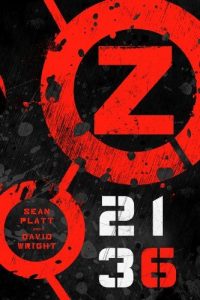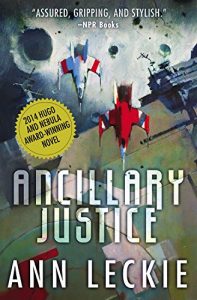 As you have no reason whatsoever to remember, I read the previous two books in this trilogy sometime in the last year or two I guess? And they were perfectly cromulent serial schlock. Hunger Games plus zombies, only a little light on the good half of that equation; and if I’m being honest with myself, probably they could have done a better job copycatting the game aspect of the equation. But still, if I don’t pause and think about the hundreds of better books on my to-read shelf, there was nothing wrong there.
As you have no reason whatsoever to remember, I read the previous two books in this trilogy sometime in the last year or two I guess? And they were perfectly cromulent serial schlock. Hunger Games plus zombies, only a little light on the good half of that equation; and if I’m being honest with myself, probably they could have done a better job copycatting the game aspect of the equation. But still, if I don’t pause and think about the hundreds of better books on my to-read shelf, there was nothing wrong there.
As of Z 2136, consider that trend broken. And I mean, broken just really badly. This is the worst book that I’ve ever managed to finish. The writing didn’t change, and the already established characters were still, y’know, fine I guess. But the new viewpoint characters and the change in plot direction were just abysmally bad. Here’s my point, which I will need to entirely spoil the surprise ending of the second book plus I guess all of this one to make, but that’s okay because, seriously, do not read these books:
There were three main characters in the series, a father and two children. The father was part of the government apparatus but also had sympathies with the rebels who didn’t like living in six dystopian cities even though the walls kept the zombies out. Later, he killed his wife via mind control and was put into the zombie hunger games. Later still after learning the truth, his daughter was too. None of that really matters except that it’s an establishing shot for the shock ending of Z 2135, in which the father is executed, Ned Stark style. And then in the afterword, the authors were all, we weren’t really planning on this, but we decided we needed a big cliffhanger, so here you go!
Which leads into the third book, where one annoying guy is transformed into a raving lunatic, while another bad guy is transformed into a new father figure to replace the one they killed and then apparently realized they still needed. Result: half the book is spent on the motivations and travails of new characters about whom I already didn’t care, only now everything was so weird and forced that I actively hated them instead of just not caring much. Then, later, the book just kind of grinds to a halt instead of having an actual ending. Everything I’ve seen indicates this is a trilogy, which is a relief since Amazon would probably have already sold me book four at 99c before I knew how horribly things turned out; but I lost control of that sentence, and how I meant to end it was “but if I didn’t have these outside sources, I would be quite certain they were planning on writing more.” Because while it was not a cliffhanger demanding more story, it also was not the end of a story.
If everyone had died, that would have been more emotionally satisfying. First, because everyone never dies, and I’m pretty sure any real zombie apocalypse is much more likely to turn out that way than the way they always do turn out. But mostly because, fuck these people. They basically all deserved to die, and the ones who didn’t are at this point acceptable casualties in my vendetta.
 Rumor has it,
Rumor has it,